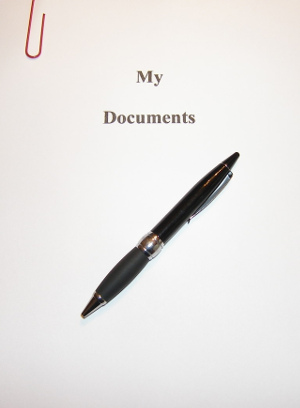 How Do You Make a Will in Minnesota?
How Do You Make a Will in Minnesota?
Most people realize they need a will. But many people don’t quite understand why or what it all means.If you have questions about how to make a will in Minnesota, read on for more information from a Minnesota law firm.
The Requirements of a Valid Will
A will can also be called a “last will and testament.” A will is used to protect your assets at your death. It can pass your assets to children, friends, loved-ones, and other charitable institutions.
The will should include the following information:
- who you are
- the name of your chosen personal representative (executor)
- the name a trusted person to help with your estate and your children if they are minors
- information telling the world what you want done with your assets and debts upon your death
The will can contain other information, but the above is a simple guide for what might be included.
Technical Legal Requirements
To make a valid will, a person also needs to make sure they meet some technical legal requirements. Some of the requirements are:
- The person making the will must be at least 18 years of age
- The person signing the will must clearly identify who they are
- The will must state who should receive the estate when the will-maker dies
- The will must be signed by the will-maker before two witnesses who also sign the will within a reasonable amount of time as the will-maker and each other.
Of all the legal requirements – number 4 above is the one that gives people the most trouble. Stated differently, when lawyers see “problems” with will, it is often because they were not executed properly. Improper execution often stems from improper witnessing and signing of the document.
Failing to Witness a Will
For whatever reason, many people who do not use lawyers to help make a will often fail to properly sign and witness the will.
Common examples of failure to witness a will include: a will-maker failing to sign the document at all. Or, the will-maker may have signed it but did not have it witnessed. Or, the will-maker will sign it but will only have one witness.
In one recent case the law firm dealt with, a will was found to be invalid by the probate court because the will-maker signed it before one witness but not a the second. The second witness signed the will after the will-maker’s death and five years after the will was made. The court found that, in this situation, the will was invalid. In other words, the person’s died without a will. This had big consequences on who received money from the estate.
Failing to Use a Lawyer to Make a Will
People can make their own wills. There are packages online and other providers who advertise making wills for people at a reduced cost. If done properly, these wills can be valid.
However, as stated above, the law firm has seen many instances when people don’t follow the requirements of the law when using online or other resources. Often, people doing it on their own misstate something that causes big problems with their otherwise valid will. One common example is failing to properly title your assets. These mistakes can be devastating for the children and loved-one’s of the deceased.
One example the law firm often gives people is: do you think it is a good idea that you do your own electrical work or plumbing? The common answer is “no.” Now, if you are an electrician or a plumber, of course your can do that for yourself or your family. But if you don’t have a lawyer in the family, it only makes sense to use a lwyer for your will.
Minnesota Estate Planning Lawyers
For more information about making a valid will in Minnesota, contact the attorneys at the law firm today. Joseph M. Flanders and Flanders Law Firm LLC has years of experience drafting will and other estate planning documents. Call today at 612-424-0398.

2 thoughts on “How to Make a Will in Minnesota | MN Lawyers Blog”